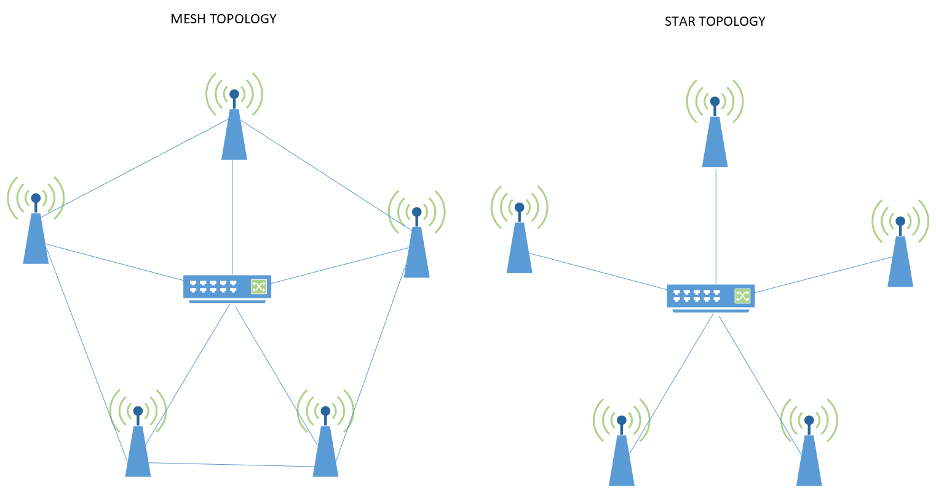Call Us
Mesh Network vs Access Points: Which One Should I Choose?

Who Needs a Mesh Network or Access Points?
Anyone experiencing Wi-Fi connectivity issues would benefit from installing either a mesh network or a few access points throughout their household or office. Both technologies aim to overcome the so-called ‘dead spots’, or weak Wi-Fi coverage areas.
It is worth mentioning that not everyone experiencing a slow internet connection would actually benefit from these technologies. If you experience slowness on the internet, it is vital to narrow down what’s causing it in the first place. Our article How to Know if It’s Your Computer or Internet That’s Slow, should help you do that. If it proves to be a wireless coverage or connectivity issue, then we can decide which of the two options would better address this issue, depending on your environment and needs.
Typically, we install these technologies either in larger homes, in which an ISP (Internet Service Provider – like Telus or Shaw) router is not enough to provide WiFi coverage to the entire household, or larger offices, warehouses etc.
Mesh Network vs Access Points
To expose the main differences between these technologies, we need to understand the concept of logical topology in a network. Logical topology is the logical arrangement of network elements in a network. Types of topologies could be point-to-point, hub, ring, tree, star, mesh, and hybrid.
The logical topology used is dictated by how traffic flows within a physical network. Looking at the diagram below, in a star topology, the only way for data to travel from a client device to the router is through a single link, while in a mesh, data can take numerous paths to reach the router.

In our case, a mesh network would obviously use a mesh topology, while a network formed by an ISP or third-party router and APs would use a star topology. Now you may still wonder why that is. And the simplest answer is that APs use an actual wire to connect directly and only to the main router, while nodes in a mesh usually connect wirelessly to the router and with one another.
So topology is the main difference between the two networks, and evaluating the environment will help in determining what type of topology will be used, which in turn will help us choose the right product. There are other differences between the two, but they aren’t as important and don’t present such a big impact as the one we described above.
Key Considerations when Choosing the Product
As stated previously, the environment will dictate the chosen topology, which in turn will dictate the chosen product. In some cases, a hybrid topology may be implemented. If your house or office is already wired with cat5e or a superior type of cable, then APs may make more sense. If it isn’t wired, or wiring would be too expensive, then a wireless mesh network may be the best solution.
We would also consider a cabling termination location if the premises were wired. Unlike mesh nodes that can be freely moved around, APs need to be installed where there is a cable termination. So, if the cabling wasn’t run strategically enough, then APs could interfere with each other and may not provide the best solution.
Pros and Cons of Mesh
+ Easy to install and manage
+ Mobility – nodes can be moved around freely if needed
+ Better Roaming – connected devices will have smoother roaming between nodes than between APs
– Cost
– Not as fast or reliable as wired APs
Pros and Cons of APs
+ Low cost
+ Fast and reliable connectivity
+ Easy to scale
– Harder to set up than a mesh network
– APs need wires terminated at strategic points throughout the premises
 Key Takeaways
Key Takeaways
If you need superior Wi-Fi coverage in your environment, then access points or a mesh network could be the solution. However, getting the desired results requires proper installation and configuration. If you would like to find out what works best for you, contact EezIT for more details. Our network specialists can offer valuable information even over the phone, though a house or office visit and a full assessment are strongly recommended.


 Key Takeaways
Key Takeaways